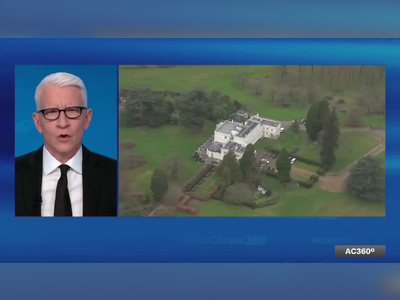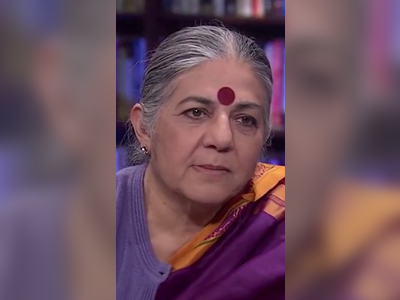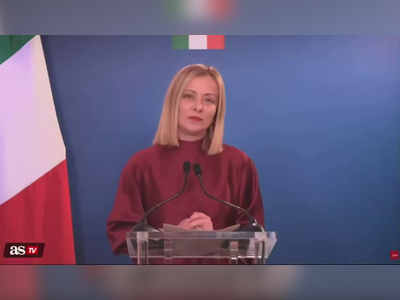
Cop26 ends in climate agreement despite India watering down coal resolution
Glasgow climate pact adopted despite last-minute intervention by India to water down language on phasing out dirtiest fossil fuel
Countries have agreed a deal on the climate crisis that its backers said would keep within reach the goal of limiting global heating to 1.5C, the key threshold of safety set out in the 2015 Paris agreement.
The negotiations carried on late into Saturday evening, as governments squabbled over provisions on phasing out coal, cutting greenhouse gas emissions and providing money to the poor world.
The “Glasgow climate pact” was adopted despite a last-minute intervention by India to water down language on “phasing out” coal to merely “phasing down”.
The pledges on emissions cuts made at the two-week Cop26 summit in Glasgow fell well short of those required to limit temperatures to 1.5C, according to scientific advice. Instead, all countries have agreed to return to the negotiating table next year, at a conference in Egypt, and re-examine their national plans, with a view to increasing their ambition on cuts.
Alok Sharma, the UK cabinet minister who presided over the fortnight-long Cop26 talks in Glasgow, acknowledged the scale of the task remaining: “We can now say with credibility that we have kept 1.5C alive. But, its pulse is weak and it will only survive if we keep our promises and translate commitments into rapid action.
“Before this conference, the world asked: do the parties here in Glasgow have the courage to rise to the scale of the challenge? We have responded. History has been made here in Glasgow.”
António Guterres, the UN secretary-general, also warned that further urgent work was needed: “Our fragile planet is hanging by a thread. We are still knocking on the door of climate catastrophe. It is time to go into emergency mode – or our chance of reaching net zero [emissions] will itself be zero.”
The return to negotiations next year, to begin an annual process of revising national targets on greenhouse gases, will be a fraught process, as some countries contend that they are already doing their utmost. Even the small step of agreeing to revise the plans was only achieved after overcoming stiff opposition, yet revision is essential if the world is to avoid surpassing the 1.5C threshold.
One of the fiercest disagreements in the final hours was over the wording of an intention to abandon coal, which was watered down from a “phase-out” to a “phase-down”. Yet it marked the first time that such a resolution had been made under the UN climate process.
Jennifer Morgan, executive director of Greenpeace International, said: “It’s meek, it’s weak and the 1.5C goal is only just alive, but a signal has been sent that the era of coal is ending. And that matters.”
Poor countries were also left frustrated at the pact, which they said did not address their concerns about “loss and damage”. This refers to the destruction caused by extreme weather, which is now hitting vulnerable countries far harder and more frequently than had been predicted.
Current climate finance, which is provided to countries to help them invest in green technology and other emissions-cutting efforts, and to adapt to the impacts of the climate crisis, is already falling short of promises, and even if fulfilled would be insufficient to cover these heavy losses and humanitarian disasters. By 2050, these hits could amount to a fifth of GDP for some poor countries, according to estimates from the charity Christian Aid.
But rich nations have been reluctant to agree any mechanism for providing funding for loss and damage, in part because some of the debate has been framed in terms of “compensation”, which rich countries cannot countenance.
Many observers called on countries to step up their efforts in the next year. Mary Robinson, former UN commissioner for human rights and chair of The Elders group of leaders and former statespeople, said: “Cop26 has made some progress, but nowhere near enough to avoid climate disaster. While millions around the world are already in crisis, not enough leaders came to Glasgow with a crisis mindset. People will see this as a historically shameful dereliction of duty. Leaders have extended by a year this window of opportunity to avert the worst of the climate crisis. The world urgently needs them to step up more decisively next year.”
Tina Stege, climate envoy for the Marshall Islands, representing the High Ambition Coalition of developed and developing countries, said: “This package is not perfect. The coal change and a weak outcome on loss and damage are blows. But it is real progress and elements of [it] are a lifeline for my country. We must not discount the crucial wins covered in this package.”
Mohamed Adow, director of the Nairobi-based thinktank Power Shift Africa, took a harsher view: “The needs of the world’s vulnerable people have been sacrificed on the altar of the rich world’s selfishness. The outcome here reflects a Cop held in the rich world and the outcome contains the priorities of the rich world.”
Many poor nations accepted defeat on their pleas to put stronger provisions on loss and damage into the text, in the closing hours of the conference, in order to allow the broader deal to go through.
Making the concession, Lia Nicholson, lead negotiator for Antigua and Barbuda, which chairs the 37-strong Alliance of Small Island States, said: “We are extremely disappointed and we will express our grievance in due course.”
Adow added: “We are leaving empty-handed but morally stronger, and hopeful that we can sustain the momentum in the coming year to deliver meaningful support which will allow the vulnerable to deal with the irreversible impacts of climate change, created by the polluting world, who are failing to take responsibility.”
The Cop also resolved several outstanding technical issues that had prevented aspects of the 2015 Paris climate agreement from coming into operation. These issues, on carbon trading and the “transparency” with which countries monitor and report their emissions, have dogged the annual climate meetings for six years but compromises were finally reached, which earned applause for Sharma.
Patricia Espinosa, executive secretary of the UN Framework Convention on Climate Change, said: “After six years, this is a significant accomplishment.”
One of the most contentious clauses in the final decision was a vaguely worded resolution to phase down “inefficient” fossil fuel subsidies. Energy experts are clear that phasing out coal will be essential to stay within 1.5C of global heating, but the opposition to the inclusion of the reference to a phase out – particularly from major coal-using countries including China, India and South Africa – showed how hard it will be to gain a global end to the dirtiest fossil fuel in time to avoid a 1.5C rise.
Fatih Birol, executive director of the International Energy Agency, told the Guardian that more than 40% of the world’s existing 8,500 coal plants would have to close by 2030, and no new ones could be built, to stay within the limit. He said: “I would very much hope that advanced economies take a leading role and become an example for the emerging world. If they don’t do it, if they don’t show an example for the emerging world, they shouldn’t expect the emerging world to do it.”
The negotiations carried on late into Saturday evening, as governments squabbled over provisions on phasing out coal, cutting greenhouse gas emissions and providing money to the poor world.
The “Glasgow climate pact” was adopted despite a last-minute intervention by India to water down language on “phasing out” coal to merely “phasing down”.
The pledges on emissions cuts made at the two-week Cop26 summit in Glasgow fell well short of those required to limit temperatures to 1.5C, according to scientific advice. Instead, all countries have agreed to return to the negotiating table next year, at a conference in Egypt, and re-examine their national plans, with a view to increasing their ambition on cuts.
Alok Sharma, the UK cabinet minister who presided over the fortnight-long Cop26 talks in Glasgow, acknowledged the scale of the task remaining: “We can now say with credibility that we have kept 1.5C alive. But, its pulse is weak and it will only survive if we keep our promises and translate commitments into rapid action.
“Before this conference, the world asked: do the parties here in Glasgow have the courage to rise to the scale of the challenge? We have responded. History has been made here in Glasgow.”
António Guterres, the UN secretary-general, also warned that further urgent work was needed: “Our fragile planet is hanging by a thread. We are still knocking on the door of climate catastrophe. It is time to go into emergency mode – or our chance of reaching net zero [emissions] will itself be zero.”
The return to negotiations next year, to begin an annual process of revising national targets on greenhouse gases, will be a fraught process, as some countries contend that they are already doing their utmost. Even the small step of agreeing to revise the plans was only achieved after overcoming stiff opposition, yet revision is essential if the world is to avoid surpassing the 1.5C threshold.
One of the fiercest disagreements in the final hours was over the wording of an intention to abandon coal, which was watered down from a “phase-out” to a “phase-down”. Yet it marked the first time that such a resolution had been made under the UN climate process.
Jennifer Morgan, executive director of Greenpeace International, said: “It’s meek, it’s weak and the 1.5C goal is only just alive, but a signal has been sent that the era of coal is ending. And that matters.”
Poor countries were also left frustrated at the pact, which they said did not address their concerns about “loss and damage”. This refers to the destruction caused by extreme weather, which is now hitting vulnerable countries far harder and more frequently than had been predicted.
Current climate finance, which is provided to countries to help them invest in green technology and other emissions-cutting efforts, and to adapt to the impacts of the climate crisis, is already falling short of promises, and even if fulfilled would be insufficient to cover these heavy losses and humanitarian disasters. By 2050, these hits could amount to a fifth of GDP for some poor countries, according to estimates from the charity Christian Aid.
But rich nations have been reluctant to agree any mechanism for providing funding for loss and damage, in part because some of the debate has been framed in terms of “compensation”, which rich countries cannot countenance.
Many observers called on countries to step up their efforts in the next year. Mary Robinson, former UN commissioner for human rights and chair of The Elders group of leaders and former statespeople, said: “Cop26 has made some progress, but nowhere near enough to avoid climate disaster. While millions around the world are already in crisis, not enough leaders came to Glasgow with a crisis mindset. People will see this as a historically shameful dereliction of duty. Leaders have extended by a year this window of opportunity to avert the worst of the climate crisis. The world urgently needs them to step up more decisively next year.”
Tina Stege, climate envoy for the Marshall Islands, representing the High Ambition Coalition of developed and developing countries, said: “This package is not perfect. The coal change and a weak outcome on loss and damage are blows. But it is real progress and elements of [it] are a lifeline for my country. We must not discount the crucial wins covered in this package.”
Mohamed Adow, director of the Nairobi-based thinktank Power Shift Africa, took a harsher view: “The needs of the world’s vulnerable people have been sacrificed on the altar of the rich world’s selfishness. The outcome here reflects a Cop held in the rich world and the outcome contains the priorities of the rich world.”
Many poor nations accepted defeat on their pleas to put stronger provisions on loss and damage into the text, in the closing hours of the conference, in order to allow the broader deal to go through.
Making the concession, Lia Nicholson, lead negotiator for Antigua and Barbuda, which chairs the 37-strong Alliance of Small Island States, said: “We are extremely disappointed and we will express our grievance in due course.”
Adow added: “We are leaving empty-handed but morally stronger, and hopeful that we can sustain the momentum in the coming year to deliver meaningful support which will allow the vulnerable to deal with the irreversible impacts of climate change, created by the polluting world, who are failing to take responsibility.”
The Cop also resolved several outstanding technical issues that had prevented aspects of the 2015 Paris climate agreement from coming into operation. These issues, on carbon trading and the “transparency” with which countries monitor and report their emissions, have dogged the annual climate meetings for six years but compromises were finally reached, which earned applause for Sharma.
Patricia Espinosa, executive secretary of the UN Framework Convention on Climate Change, said: “After six years, this is a significant accomplishment.”
One of the most contentious clauses in the final decision was a vaguely worded resolution to phase down “inefficient” fossil fuel subsidies. Energy experts are clear that phasing out coal will be essential to stay within 1.5C of global heating, but the opposition to the inclusion of the reference to a phase out – particularly from major coal-using countries including China, India and South Africa – showed how hard it will be to gain a global end to the dirtiest fossil fuel in time to avoid a 1.5C rise.
Fatih Birol, executive director of the International Energy Agency, told the Guardian that more than 40% of the world’s existing 8,500 coal plants would have to close by 2030, and no new ones could be built, to stay within the limit. He said: “I would very much hope that advanced economies take a leading role and become an example for the emerging world. If they don’t do it, if they don’t show an example for the emerging world, they shouldn’t expect the emerging world to do it.”











